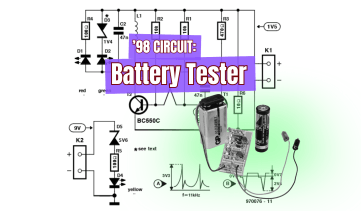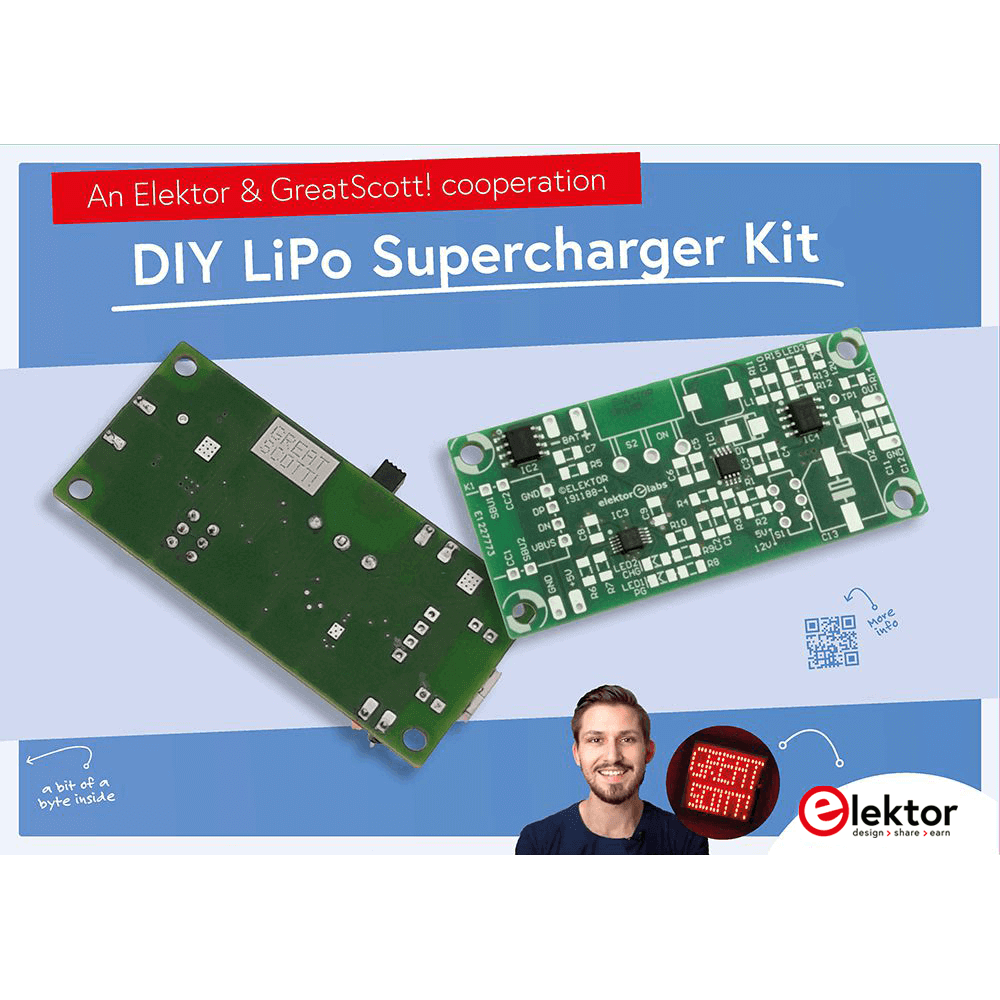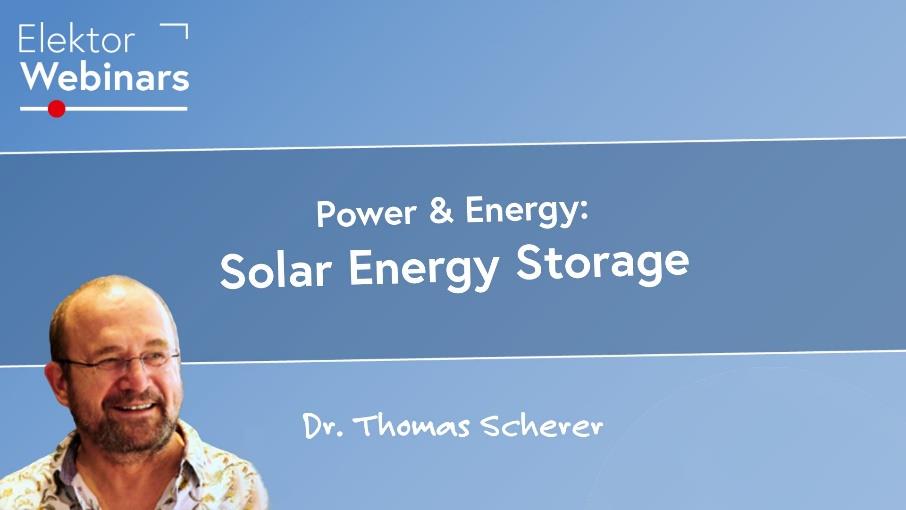Power Electronics & Energy
Solar and Wind Energy

Wind Power: Wise Move or Waste of Time?
The UK Government recently announced the world’s biggest ever expansion in wind energy. So how realistic is this scheme? What are the pitfalls, technical and otherwise, and how viable is it economically? It’s time to look at wind generation in the round.Wind is simply air in motion, with mass and energy. It has been used for centuries, the most obvious example being windmills. In 1850 the American Daniel Halliday developed the ‘multi-bladed’ farm windmill, a relatively simple device that inspired the first attempts to convert wind into a form of energy that could be either stored for future use, or applied elsewhere.Download article

Balcony Power Plant: DIY Solar Balcony = Speedy Payback!
You don’t need to cover a whole roof with PV solar panels before the installation becomes both economically and ecologically viable. The idea of a grid-tie PV installation on your balcony is starting to gain traction with so many office workers now working from home, any energy input from sunlight can help offset the additional domestic power usage during daylight hours. These mini power plants are quite cheap and even benefit from subsidies in some European cities. I looked into the regulations governing them, did some research on the equipment and went ahead with the installation.Download free article

Solar Power Made Simple: Solar Charging With and Without a Controller
Complicated charge controllers and inverter circuits can be used to squeeze the last drop of energy out of a solar panel. Contrary to popular belief, however, it is also possible simply to connect the battery directly to the panel.Download article

Optimizing Balcony Power Plants: Considerations, Interesting Facts, and Calculations
The hype surrounding solar technology in general and balcony power plants in particular has continued unabated since the start of the war in Ukraine (and the resulting uncertainty regarding energy supply in central Europe). Since our last article in 2021, supply and sales in this sector have seen huge growth and prices are lower than ever. The background information in this article will make it easier to get started!Download article
Batteries

The Road to Battery Power: The Dawn of the Age of Electric Vehicles
At the beginning of the twentieth century the internal combustion engine started to take over from electrically-powered vehicles. Now, a hundred years later, electric vehicles are slowly but surely making a come-back. Development continues apace and the enormous potential is clear. The key to the success of electric vehicles lies, contrary to early expectations, in lithium-ion cells rather than in fuel cells.Download article

ABC of Rechargeable Batteries: Basics, Pitfalls & Recommendations
The remarkable progress in battery development owes much to the the boom demand for portable gadgets like mobile phones, laptops, camcorders, and MP3 players. To shed light on the batteries powering these devices, let's take a nostalgic stroll through the charging methods and battery technologies of yesteryears, including the trusty nickel-cadmium (NiCd), nickel-metal-hydride (NiMH), and lithium-ion (Li+) chemistries.Download article

Safety in Large Lithium Battery Installations
Every manufacturer of mobile phones, tablets and notebook computers looks to lithium-ion technology to provide a lightweight, long-lasting and reliable energy storage capability that can fit easily inside a small enclosure or housing. Crucially, after billions of hours of use worldwide, lithium-ion batteries in these applications have proved to be safe. How come?Download article

Solar Cell Battery Charger/Monitor
Solar battery chargers store the energy obtained from the sun in batteries. The author has developed a system that charges the battery according to the manufacturer's specifications and protects against deep discharge. The system displays all important operating parameters on an LC display. According to the manufacturer's specifications, the peak power of the solar module used here is 150 W at 14.5 V. In practice, the current after deducting all losses is a maximum of 7.5 A.Download article
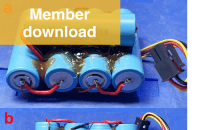
Lithium Battery Pack Repair: Save Money + More Power!
It’s a familiar story. After a few years of use, the cordless screwdriver needs charging more often and the cordless vacuum cleaner doesn’t have the energy to collect your crumbs. The simplest and most costly solution is to order a replacement battery pack. But have you considered just replacing the cells in the battery pack? This approach saves money and reduces waste. This isn’t just a repair; it’s an upgrade!Download article
Power Supplies and Inverters

Cool Power: Switch Mode Power Supplies: An Introduction
Switch Mode Power Supplies (SMPS) are often too quickly put aside because of their complexity. This article presents an overview to SMPS technology and a brief description of the most widely used topologies, but in a practical way, trying to demystify the topic and encourage the electronics hobbyist to start developing his own 'switchers', or at least know how to choose the right topology for a given application.Download article

Professional Lab Power Supply: Quality Has Its Price
Ordinary power supplies are as common as sand on the beach, and even lab power supplies come in all sorts and sizes. These are adequate for many purposes, but if you want high quality, high stability and precise regulation, you have to put out a lot of money — and that for a power supply with only modest output power. Another option is to build one yourself.Download free article

Sinewave Inverter with Power Factor Correction
Power inverters are used to generate AC powerline voltages like 230 VAC or 115 VAC in the field, using high capacity 12 V or 24 V vehicle batteries. They come in a wide variety of output powers (anything between 15 and 1,000 watts) and quality of the AC output voltage (anything from abominable to pure sinewave). Some models even have output voltage regulation. Few however combine power factor correction (PFC) with ‘pure-sine-wave-out’, hence a suggested design appears in this article, along with a light theoretical background.Download article
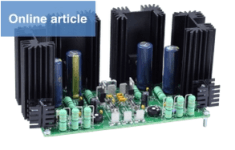
±40-V Linear Voltage Regulator: An Alternative Power Supply
For those who frown upon any shape or form of switched-mode power supply (SMPS) for the high-end Fortissimo-100 Power Amplifier, this project yields a 500+ VA, linear, symmetrical voltage regulator marked by low dropout voltage, high output current, and excellent stability — all obtained from discrete components and built from a kit! Read article online

Versatile Power Supply for Breadboards
Breadboard power supplies are useful when no desktop lab power supply is available. Most of the modules on the market are limited to positive output voltages, lower than the input voltage. The project we present here is different. With the help of two integrated circuits from Maxim, a 5-V micro-USB adapter at the input provides up to four adjustable output voltages, three positive ranging from 0.6 V to 20 V and one negative from -1.8 V to -11 V.Read article online
Measurement
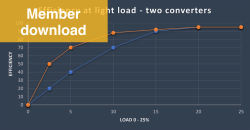
Comparing Power Density and Power Efficiency
Often the choice of power supply is made based on a single efficiency figure on the datasheet, and manufacturers are doing all they can to drive this number up, including defining the measurement conditions ever more carefully. Designers are coming up with more sophisticated topologies, such as phase-shifted full bridges (PSFBs) and LLC converters, and at the component level, MOSFETs supplant diodes to reduce losses. Even silicon is being challenged as wide bandgap (WBG) materials such as silicon carbide (SiC) and gallium nitride (GaN) promise enhanced performance, even at high switching speeds.Download article
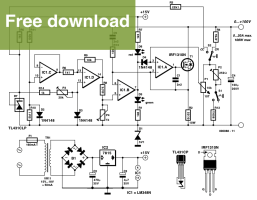
High Power Adjustable Load With Power Limiter
An adjustable load resistance is indispensable for the realistic testing of power output stages. This circuit provides an electronic alternative to the use of inconvenient high-wattage resistors. The circuit described here has two modes of operation. It can function as an adjustable current sink or as a variable load resistance. At a voltage of between 0 V and a maximum of 100 V, the sink current can be set in the range 0 A to 20 A. As a load resistance, it can be set to values from less than 1Ω to more than 100 kΩ. The maximum power dissipation is in the region of 100 W. The circuit is designed for operation with DC voltages, but with the addition of a rectifier, it can also be used with (low frequency) AC voltages. A carefully constructed and calibrated unit can deliver a linearity of better than 0.5%.Download free article

ATX Power Supply Tester
A dedicated tester simplifies the evaluation of (second-hand) PC power supplies, often purchased inexpensively at venues like computer fairs. This efficient tool, requiring only a mains cable, helps test all power supply outputs under load, displaying deviations on six LEDs. While a PC's power supply typically doesn't significantly impact its speed, there are occasions, such as a malfunction or increased power demands due to upgrades, that necessitate replacement.Download article
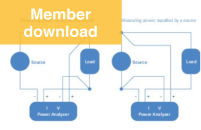
Multi-Channel Power Analyzer: Up to 3 Channels, With Graphic and Alphanumeric Display
When making voltage, current and power measurements on AC-powered devices things are getting more complicated than measuring DC, because waveform and phase-shift between voltage and current play an important role here. This instrument not only measures and calculates quantities, but also shows waveforms and spectra of AC-signals on a graphical LCD.Download article
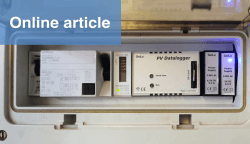
Build an Energy Logger to Measure and Record Power Consumption
There are many potential applications where a continuous record of the generation or consumption of electrical energy makes sense. Just think of the energy consumption of certain circuits in the house or the energy supplied by a balcony power plant or a larger photovoltaic system. There are ready-made solutions for recording, but you can also build a suitable logger yourself.Read article online

Measuring Power Inductors
Most LCR meters measure components with a current of just a few milliamps. For capacitors and resistors this is fine, but the inductance (and properties in general) of power inductors vary with the (DC) current level. To test this influence of the current on inductance, all that is needed is a series (current sense) resistor with very low resistance and a stable power supply with high output current. This principle has been applied in many different ways over the years. A power switch (often a MOSFET) and pulse generator is needed to switch off the voltage across the inductor before it gets too high. An oscilloscope is used to monitor the current through the inductor. This circuit is stand-alone. The maximum current is adjustable and a trigger signal for the oscilloscope is also provided. No external pulse generator is needed. A PCB ensures that resistance between power supply, inductor, MOSFET and current sense resistor is minimal. Read article online
Components and Circuits

Power LED Driver
If you want to operate power LEDS with a truly constant current – which significantly prolongs the lifetime of the lamp – and avoid the power loss resulting from using a constant voltage supply with a series resistor, you need a suitable constant current source. However, the only way to achieve really good efficiency is to use a switching regulator.Download article

Wireless Power Transfer
Wireless energy transfer is the future! With this small experimenting set you can explore this technology yourself! Very little is required and over a distance of about 5 to 10 inches you can transfer a (small) amount of energy.Download article

Power MOSFET tester
MOSFET output transistors should be as near-identical as possible, irrespective of whether they are complerilentary pairs or connected in parallel. The tester described here enables you to check that they are.Download article

Wireless Power Converter: Convey 50 Watts Through the Air
In cooperation with Würth Elektronik, in this article we present a pair of modules for high-efficiency wireless power transfer with a maximum capacity of 50 watts over distances up to a few centimeters. This set is available at a special price to enable Elektor community members to try out this highly promising technology.Download free article
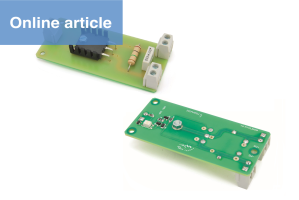
High-Voltage-Power-Insulated-SSR: Embed Your Own Solid-State Relay in Your Projects
Solid-state relays, also known as SSRs, are widely available on the market, for any voltage or current rating. Why make one, then? Because it is sometimes useful, in terms of cost-effectiveness and PCB space constraints, to incorporate one right into our circuit. In this article, we’ll see how to design it with discrete components.Read article online
Solar Power Systems (2025): Installation, Battery Storage, and Cost Analysis
Want to learn about the process of setting up a DIY solar power system, including installation procedures, battery storage options, and a comprehensive cost analysis? In this Elektor Webinar, Dr. Thomas Scherer discusses: key components and materials needed for a home solar setup; the role and selection of hybrid inverters and smart meters; insights into battery types, capacities, and management systems; economic considerations; and more. Whether you're considering a small-scale project or a large installation, this webinar will help you to make informed decisions about harnessing solar energy for your home. Watch the Webinar!













